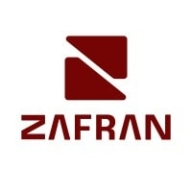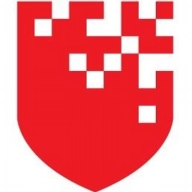


Tenable Security Center and RedSeal are both prominent in the network security management sector, specializing in vulnerability assessment and risk management. Tenable Security Center is often preferred for its customer satisfaction relating to pricing and support, while RedSeal is favored for its extensive features that justify its higher cost.
Features: Tenable Security Center is well-regarded for its real-time vulnerability assessments, continuous network monitoring, and comprehensive IT asset management. Additionally, it offers extensive scanning abilities and seamless integration with various systems. RedSeal, on the other hand, provides advanced analytics, predictive threat modeling, and exceptional network visualization capabilities, offering superior visibility and predictive analysis tools.
Room for Improvement: Tenable Security Center could enhance its reporting functionalities and user interface to make data interpretation more intuitive. Its advanced analytics feature can be further developed for better insights. RedSeal may improve on simplifying its deployment process, offer more concise user documentation, and reduce complexity in its analytics features to cater to smaller organizations.
Ease of Deployment and Customer Service: Tenable Security Center is noted for its straightforward deployment and excellent customer support, making it a user-friendly choice for various enterprises. RedSeal's deployment process is more complex, requiring meticulous planning, though it benefits from comprehensive support and resources that guide users through complex setups.
Pricing and ROI: Tenable Security Center presents competitive pricing models with low initial costs, yielding strong ROI, particularly appealing to small and medium-sized businesses. Conversely, RedSeal involves greater initial costs, which are offset by long-term advantages, particularly for large and intricate networks, enhancing value through heightened protection and operational efficiencies.



Zafran Security integrates with existing security tools to identify and mitigate vulnerabilities effectively, proving that most critical vulnerabilities are not exploitable, optimizing threat management.
Zafran Security introduces an innovative operating model for managing security threats and vulnerabilities. By leveraging the threat exposure management platform, it pinpoints and prioritizes exploitable vulnerabilities, reducing risk through immediate remediation. This platform enhances your hybrid cloud security by normalizing vulnerability signals and integrating specific IT context data, such as CVE runtime presence and internet asset reachability, into its analysis. No longer reliant on patch windows, Zafran Security allows you to manage risks actively.
What are the key features of Zafran Security?
What benefits can users expect from Zafran Security?
In industries where security is paramount, such as finance and healthcare, Zafran Security provides invaluable protection by ensuring that only exploitable vulnerabilities are addressed. It allows entities to maintain robust security measures while allocating resources efficiently, fitting seamlessly into existing security strategies.
RedSeal’s network modeling and risk scoring platform builds an accurate, up-to-date model of an organization’s entire, as-built network to visualize access paths, prioritize what to fix, so you can target existing cybersecurity resources to protect your most valuable assets. With RedSeal’s Digital Resilience Score, decision makers can see the security status and benchmark progress toward digital resilience.
Get a risk-based view of your IT, security and compliance posture so you can quickly identify, investigate and prioritize your most critical assets and vulnerabilities.
Managed on-premises and powered by Nessus technology, the Tenable Security Center (formerly Tenable.sc) suite of products provides the industry’s most comprehensive vulnerability coverage with real-time continuous assessment of your network. It’s your complete end-to-end vulnerability management solution.
We monitor all Risk-Based Vulnerability Management reviews to prevent fraudulent reviews and keep review quality high. We do not post reviews by company employees or direct competitors. We validate each review for authenticity via cross-reference with LinkedIn, and personal follow-up with the reviewer when necessary.